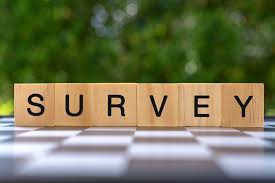Waterlily, a startup that aims to predict long-term care needs using artificial intelligence, secured $7 million in seed funding.
You are here
Surveys about tech usage -- and other blog posts from August 2024
 Surveys were released recently that trigger some debate. Consider whether the low adoption of health-related tech is due to flaws with the tech or with the survey questions? AARP’s responders only had notable interest in fitness apps, though 63% of responders had chronic conditions that could usefully be monitored or mitigated by apps if the survey took a deeper dive. Do we really know from this non-specific survey whether older adults are trying them out? Up next was the Best Buy survey of consumer health tech – and again some irony in the responses. Sixty-seven percent of the 65+ responders said that staying in their homes is a top priority. Yet when asked about the utility of monitoring technology for use in later life, the 65+ segment was the least interested among age cohorts, a clear “What me, worry?” Here are the blog posts from August 2024:
Surveys were released recently that trigger some debate. Consider whether the low adoption of health-related tech is due to flaws with the tech or with the survey questions? AARP’s responders only had notable interest in fitness apps, though 63% of responders had chronic conditions that could usefully be monitored or mitigated by apps if the survey took a deeper dive. Do we really know from this non-specific survey whether older adults are trying them out? Up next was the Best Buy survey of consumer health tech – and again some irony in the responses. Sixty-seven percent of the 65+ responders said that staying in their homes is a top priority. Yet when asked about the utility of monitoring technology for use in later life, the 65+ segment was the least interested among age cohorts, a clear “What me, worry?” Here are the blog posts from August 2024:
AI make the case for remote monitoring app suites? Asking ChatGPT a question on an iPhone returns a detailed answer. Of course, it’s slightly different when asked again. The question: “What devices are useful for monitoring older adults in their home?” The categories (and sub-categories) were not surprising – you can give it a try yourself. They included medical alerts, smart home devices, cameras and video monitoring, remote health monitoring fall detection sensors, GPS tracking devices, medication management, environmental monitoring (see Appendix 2). On the iPhone, adding companion robots – and an observation: “These devices, especially when used together, can create a safer and more supportive environment for older adults living independently.” Read more.
Has search improved enough to help navigate the AgeTech market? You were not alone at finding the first page of Google search results annoying. As has been expected, the tech user experience was annoying. There were ads and more ads to scroll past as you looked for a believable answer. As a result of those ads, the answer seemed, well, somewhat untrustworthy. But a few months ago, that changed, and for those of you just returning for a search, you may be startled. Asking “what AI is in hearing aids” – a longer answer is provided, with the ads for hearing aids pushed to the right side for those with big screens. On a phone, these are not visible. No doubt Google is working on that as we speak, though its list of examples, these soon became AI (Gemini) powered paid ads. Read more.
AI is working today in senior living and care. Exceeding expectations in every way. The next report was going to be titled – “The Future of AI in Senior Living” but that was so yesterday. One 2023 document, The Future of Artificial Intelligence in Senior Living offered up the categories where it would/could be useful – including in remote home monitoring, and its ‘emerging’ categories of AI solutions for seniors and senior living communities. The report referred to a 2023 study about how an AI algorithm could predict patients at highest risk for readmission to the hospital – using multiple data sources as inputs. No surprise – the algorithm’s recommendations were used, and the predictions and care recommendations enabled a 21% reduction of rehospitalization. Read more.
